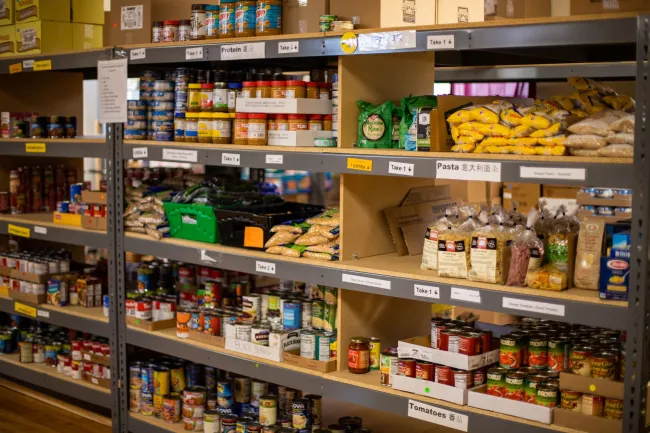Low-income families residing in food deserts in the US face significant systemic barriers that limit access to affordable and nutritious food. This action research study took as its case study an evolving social enterprise, Food Forward, to examine how marginalized community members engage, build capacities, and exercise agency in the social innovation of food systems, and to identify early indicators of changes in food behaviour.

Low-income families residing in food deserts in the US face significant systemic barriers that limit access to affordable and nutritious food. This action research study took as its case study an evolving social enterprise, Food Forward, to examine how marginalized community members engage, build capacities, and exercise agency in the social innovation of food systems, and to identify early indicators of changes in food behaviour.
Food Forward home delivers partially prepared meal kits to low-income residents once a week with the goal of helping alleviate stress around food, including lack of cooking and nutritional knowledge, financial stress, and transport limitations. The scheme combines a focus on trust and relationship building with fostering meal preparation skills.
Using a mixed-methods approach, the study looked at the ways in which 25 low income residents participated in the scheme and analysed outcomes as regards their eating behaviours, willingness to try new foods, the involvement of children in meal preparation and so forth.
The authors find that marginalised communities vary in their level of participation, with some taking a more active role than others. For those that do take an active role, deeper participation in food-systems innovation is associated with positive changes in healthy food behaviours. However, the authors also showed that issues that go beyond food are key variables, with mental health problems and trauma acting as major barriers to participation. The paper concludes that opportunities for deep participation alone are insufficient to produce healthy food behaviours, and attempts must be made to simultaneously combat issues with mental health.
Paper abstract
Low-income families, especially those who reside in food deserts, face significant systemic barriers regarding their ability to access affordable and nutritious food. The food behaviors exhibited by low-income families are a reflection of the shortcomings of the built environment and conventional food system. Policy and public-health initiatives to improve food security have, thus far, failed to deliver interventions that simultaneously address multiple pillars of food security. Centering the voices of the marginalized and their place-based knowledge may result in the development of food-access solutions that are a much better fit for the population that they intend to serve. Community-based participatory research has emerged as a solution to better meet the needs of communities in food-systems innovation, but little is known about the extent to which direct participation improves nutritional outcomes. The purpose of this research is to answer the following question: how can food-access solutions authentically engage marginalized community members in food-system innovation, and if participation is related to changes in their food behaviors, how is it related? This action research project leveraged a mixed-methods approach to analyze nutritional outcomes and define the nature of participation for 25 low-income families who reside in a food desert. Our findings suggest that nutritional outcomes improve when major barriers to healthy food consumption are addressed, for example, time, education, and transportation. Furthermore, participation in social innovations can be characterized by the nature of involvement as either a producer or consumer, actively or inactively involved. We conclude that when marginalized communities are at the center of food-systems innovation, individuals self-select their level of participation, and when primary barriers are addressed, deeper participation in food-systems innovation is associated with positive changes in healthy food behaviors.
Paper reference
Katre, A. and Raddatz, B., 2023. Low-Income Families’ Direct Participation in Food-Systems Innovation to Promote Healthy Food Behaviors. Nutrients, 15(5), p.1271.
Read the full paper here. See also the TABLE Explainer What is food security?




Comments (0)